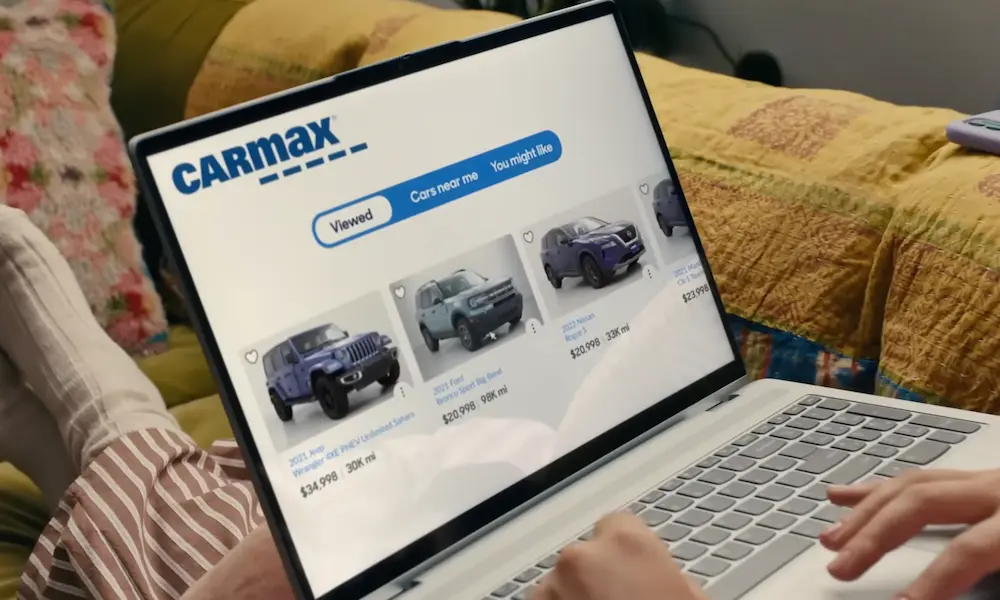Buying a car out of state can be a bit daunting, but with the right information, the process can be smooth and stress-free. When purchasing a car in Michigan from out of state, you’ll need a completed and signed Application for Michigan Vehicle Title form, proof of Michigan No-Fault insurance, and payment for title transfer and sales tax. Knowing these requirements can make your experience a lot easier. Let’s explore the steps to ensure a hassle-free purchase.
Understanding the Basics of Out-of-State Car Purchases
Buying a vehicle from out of state involves understanding specific insurance policies, knowing how to deal with sellers, and being aware of legal considerations. This can make the process smoother and more enjoyable.
Michigan No-Fault Insurance Policy
When buying a car in Michigan from out of state, you need to understand Michigan’s no-fault insurance. This policy ensures that your insurance covers medical expenses, wage loss, and other costs, regardless of who is at fault in an accident.
You should contact your auto insurance provider and discuss the specifics of getting no-fault insurance coverage for your newly purchased vehicle. It’s essential to have this coverage before driving your car in Michigan, as driving without it can lead to hefty fines and penalties.
Dealing with Out-of-State Dealerships and Sellers
When dealing with out-of-state dealerships and sellers, communication is key. Whether you’re buying from a dealership or a private seller, ensure you get a vehicle history report to check for any previous damage or issues. You can request this report through services like Carfax or AutoCheck.
Negotiate all terms including price, taxes, and any additional fees. Be clear about the total cost, including transportation if you’re having the car shipped to Michigan. Make sure to finalize the bill of sale and payment details before making any financial commitment.
Legal Considerations for Out-of-State Purchases
Legal considerations are crucial when buying a vehicle from another state. You need to complete the proper paperwork such as the bill of sale, title transfer, and temporary registration. Michigan requires that you show proof of insurance at the time of registration.
Check with the Michigan DMV to know the exact requirements for registering your vehicle. They will provide you with the forms and steps needed to transfer the title and register the car. Ensuring all these legalities are in place will help you avoid any potential issues down the road.
Finding the Right Car
When buying a car in Michigan from out of state, you need to make informed decisions. Start by comparing dealerships and private sellers, checking prices and reviews, and getting a detailed vehicle history report.
Choosing Between Dealership and Private Seller
When deciding between a dealership and a private seller, consider the benefits and drawbacks of each.
Dealerships offer certified pre-owned cars and warranties, giving peace of mind. They often have financing options and will handle title and registration paperwork. However, they might be more expensive than private sellers.
Private sellers, on the other hand, can offer lower prices and might be open to negotiation. Meeting the seller and seeing the car’s history firsthand is possible, but remember that private sellers may not provide warranties. You will also handle the paperwork yourself.
Vehicle History Report Essentials
Getting a vehicle history report is crucial. Services like Carfax or AutoCheck can provide detailed reports that include:
- Accident history
- Number of previous owners
- Service records
- Title status
Make sure you check for any red flags, such as major accidents, title issues, or recalls. A clean history report can offer peace of mind and prevent future problems. Always verify the VIN with the report and the car to ensure they match.
By taking these steps, you can find a car that fits your needs and budget while avoiding potential pitfalls.
Steps for Buying a Car from Out of State
When buying a car from out of state, you need to follow specific steps to ensure the process goes smoothly. These include checking for liens and insurance requirements, securing a bill of sale, obtaining a vehicle history report, and finalizing the sale with proper payments and paperwork.
Checking for Liens and Insurance Requirements
Before purchasing, it’s crucial to check if there are any existing liens on the car. A lien means a loan against the vehicle, and it must be cleared before you can take ownership. Contact the seller and request documentation proving that any liens have been satisfied.
Insurance requirements are another important aspect. You’ll need proof of Michigan No-Fault insurance for the vehicle. Contact your insurance company to set this up before finalizing the sale. This step helps you avoid legal issues when you bring the car into Michigan.
Securing a Bill of Sale
A bill of sale is a vital document when buying a car. It acts as a receipt and proves that the transaction occurred. Make sure the bill of sale includes the names of both the buyer and seller, the vehicle’s make, model, year, and VIN, as well as the sale price.
It’s also wise to have both parties sign the document. In some states, notarization might be required for the bill of sale. Check the specific requirements for Michigan and the state you are purchasing from to ensure compliance.
Obtaining a Vehicle History Report
Getting a vehicle history report is essential to avoid buying a car with hidden issues. This report provides details about the car’s past, including any accidents, title issues, or odometer discrepancies. Services like Carfax or AutoCheck can provide these reports.
This step will help you make an informed decision. If the report shows any red flags, you may want to reconsider the purchase or negotiate a lower price. Always review the vehicle history report before committing to buy.
Finalizing the Sale: Payments and Paperwork
After you’ve done your checks and are satisfied with the car, it’s time to finalize the sale. You’ll need to handle payment securely, whether through cash, check, or financing. Make sure you have a signed agreement that outlines the terms of the sale.
Next, complete the necessary paperwork. This includes transferring the vehicle title, registering the car in Michigan, and paying any applicable sales tax. In Michigan, there’s a 6% use tax for out-of-state vehicle purchases, which must be paid when registering the vehicle with the Secretary of State’s office.
Ensure you have all the required documents, such as the signed title, bill of sale, and proof of insurance, to smooth the registration process.
Title and Registration Process
When you buy a car from out of state and bring it to Michigan, you’ll need to transfer the vehicle title, pay the necessary fees, and register the car to drive legally. Here are the steps you need to follow.
Transferring the Title on an Out-of-State Vehicle
To transfer the title of an out-of-state vehicle to Michigan, you need to visit a Secretary of State office. Bring the out-of-state vehicle title, your valid Michigan driver’s license or ID, and proof that you’ve bought the car.
Both the buyer and seller must sign the title. If another person is listed as an owner on the title, they need to be there too. Sometimes, an online title transfer is possible if you meet certain conditions, such as having an online service account and the current Michigan paper title.
Calculating Sales Tax and Title Transfer Fees
When transferring the title, you’ll need to pay a title transfer fee of $15. If the vehicle is bought outside Michigan, you will also have to pay a 6% sales tax on the sale price of the vehicle. Some additional fees may apply based on the vehicle’s MSRP (Manufacturer’s Suggested Retail Price).
If you use a credit card to pay these fees, expect a processing fee of 1.75%. It’s helpful to bring cash or a check to avoid this extra charge. Make sure to calculate these costs beforehand to avoid any surprises at the Secretary of State office.
Registering Your Vehicle in Michigan
Once the title is transferred, you’ll need to register your vehicle. You must do this within 15 days of bringing the car to Michigan. Head to a Secretary of State office with the vehicle title, your Michigan driver’s license or ID, proof of Michigan No-Fault insurance, and a filled-out registration form.
You also need a valid vehicle registration tab and license plate. If you don’t already have a tab or plate, you can buy them at the office. Make sure all your documents are handy and current to smooth out the registration process.
After Purchase: Legal and Logistical Considerations
Once you’ve bought a car in Michigan from out of state, you need to follow several legal and logistical steps to ensure the vehicle is registered properly and complies with state regulations. This involves acquiring Michigan license plates, meeting temporary registration needs, and addressing emissions standards.
Applying for Michigan License Plates
To apply for Michigan license plates, you need the vehicle’s original title or a certified copy from the previous state. If you bought the car from a private seller, you’ll also need a Bill of Sale. Bring these documents to the Michigan Department of Motor Vehicles (DMV), along with proof of insurance for your motor vehicle and a photo ID.
You may also need to complete an Application for Michigan Vehicle Title form. This form requires information about the car, such as the Vehicle Identification Number (VIN), make, model, and year. If the car has a lien, a Lien Termination Statement is necessary to complete the registration and obtain your license plates.
Temporary Registration Requirements
If you drive the car in Michigan before completing the registration, a temporary registration is essential. You can obtain this from the DMV, allowing you to legally operate the vehicle for a short period, usually 30 days. You’ll need proof of ownership, such as the original title or Bill of Sale, along with proof of insurance.
Temporary registration ensures you comply with Michigan laws while waiting for your permanent plates and registration. Make sure the temporary tag is visibly displayed on your car to avoid fines or penalties.
Meeting Emissions and Safety Standards
Some states have different emissions and safety requirements. When bringing a car into Michigan, you must ensure it meets the state’s standards. This may involve an inspection, particularly if the vehicle was purchased from a state with less strict emissions standards.
Check if the Michigan DMV requires a specific emissions test for your vehicle. In some cases, modifications might be necessary to meet local regulations, especially for older cars or vehicles imported from states without similar safety checks.
Understanding Title and Registration Fees
When registering your car in Michigan, you’ll encounter various fees. Title fees are typically $15, or $16 if there is a lien on the vehicle. Registration fees depend on the car’s age and value. Michigan also charges a 6% sales tax on transferred vehicles, whether bought from a dealership or a private seller.
Keep receipts and documentation to verify these payments. Late fees may apply if you don’t register the vehicle within the required timeframe, usually 15 days from the purchase date.
Addressing a Salvage Title
If your vehicle has a salvage title, additional steps are necessary for registration. Michigan requires a thorough inspection to ensure the car is safe and up to standard. You must provide an Appointment of Agent form if someone other than the owner handles the inspection process.
After passing inspection, you need to apply for a rebuilt title before the car can be legally driven. Be prepared to pay additional fees for this process and provide detailed records of repairs and parts replaced, enhancing transparency.
By following these steps, you ensure your car is legally registered and compliant with Michigan’s regulations, enabling you to drive confidently on the state’s roads.














